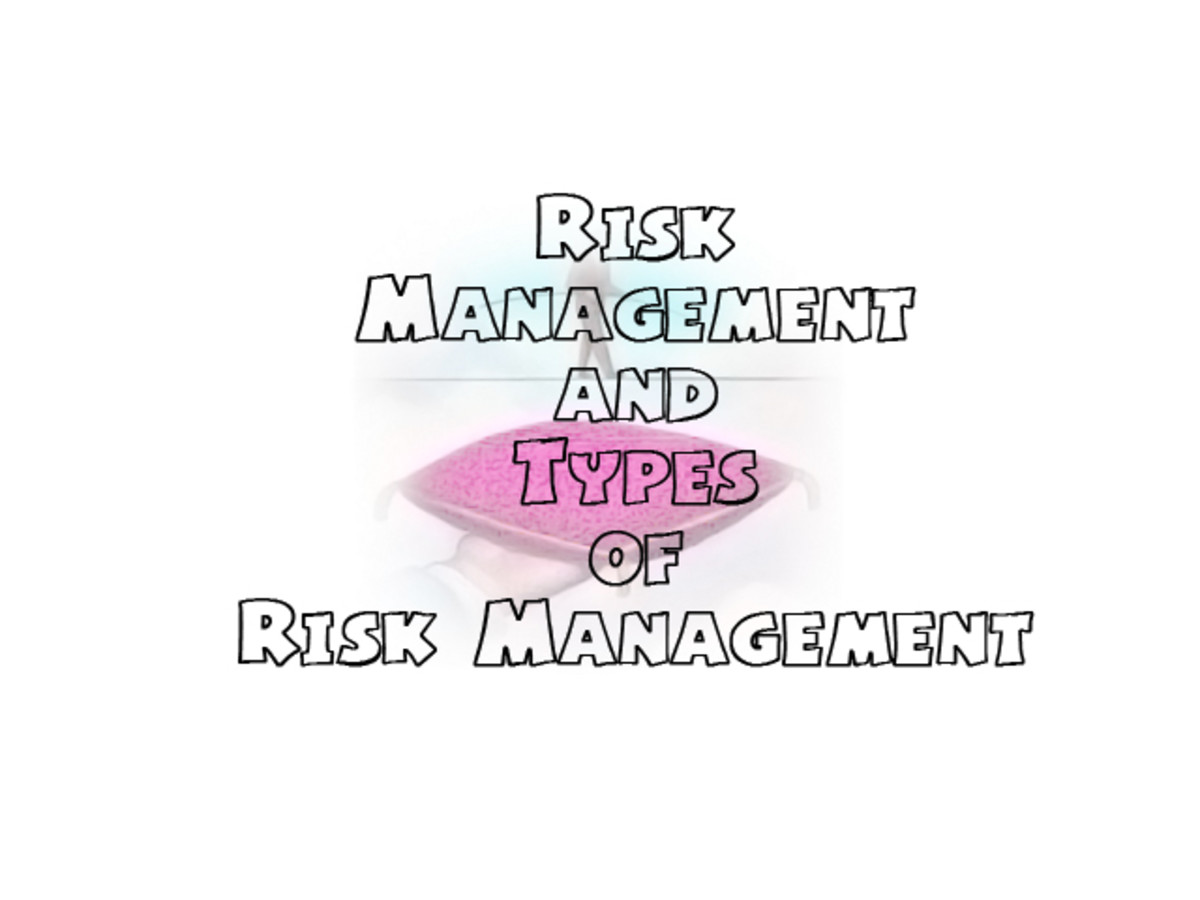THINKING ALOUD (BusinessLaw) BUSINESS RISKS: Unintended Self-insurance
In the business world, the rear view mirror is always clearer than the windshield.
— Warren Buffett
FLOOD INSURANCE – unintended self-insurance
Writer: Chén Róng
In the minds of many Asia business people, insurance is probably an afterthought instead of an initial planning process. It is also not part of the continuing review of their business practice. For a start-up, it is important to think carefully about where a business should be situated in the first place. The rent might be cheaper in a flood-prone area but it has to be many times cheaper to equal the cost of a total uninsured loss.
Why should there be an uninsured loss, you may ask.
The number of small businesses in Asia is growing rapidly as more people are increasing finding difficulty in getting jobs in big established multinational corporations. Effects of climate change and change-induced sea level rise and subsidence, floods are now destroying many otherwise successful retail premises, workshops and a range of other small businesses in major rich Asian cities. Running the gamut, in terms of risk of high projected losses published by the World Bank, the affected cities are: Guangzhou, Mumbai, Shenzhen, Tianjin, Ho Chi Minh City, Jakarta, Chennai, Surat, Zhanjiang, Bangkok, Xiamen and Nagoya.
The biggest risk to a business owner is the inability to get any insurance company to sell him a Flood Insurance policy. If he finds one, the premium may be so preposterous that he finds self-insuring against flood risks a better option. This piece of information may come as a surprise to many business owners. When such news is not reported it does not mean the stories are just fictions. Being uninsurable raises multiple questions about the ability to conduct business at all.
To remain in an area without insurance is effectively self-insuring risk of floods. It is an unintended self-insurance risk taken against good risk management policy. Taking on a risk that the insurance companies have decided is simply too risky, business owners are waging a risk against the experts! One way to partially hedge the risk is to put annual premium savings into a contingency fund. Lots of discipline has to go into such a plan. It is not a recommended strategy.
The alternative is to move, and this raises some other business issues that a new location will bring -- refurbishing costs, downtime, customer profiles, etc. Besides, being new to an area means you are unlikely to know the local history or think to check what the insurance premiums might be before signing on a lease. The advice is: talk it over with insurance brokers the moment you identified a location considered as one probable venue for the business. Chances are, locations where the local governments or state has made adaptations of flood protection or adopted mitigation initiatives, premiums may fall or at least stop rising. The big issue of the role of government in avoiding disasters is either through the planning procedures or subsequent mitigation effort. It is something that tends to surface following a catastrophe. In many instances, such proposals simply fade away. Flood prevention programs inevitably involve spending money, and politicians would prefer to spend it elsewhere.
At times municipal authorities settled for less costly methods such as sandbags stacking around affected areas; and the use of extra water pumps to drain away floods. These mitigation initiatives are unlikely to impress the insurance companies into lowering of flood premiums. If business owners have their factories located in low lying areas -- huge industrial estates such as those in Ayutthaya or other provinces north of Bangkok, such properties will have difficulty securing flood insurance. If insurances are available, the annual premiums may be prohibitive.
For all others who found suitable places for relocation; once businesses are settled in, flood hazard maps should be routinely checked as part of the due diligence as if owners are about to make a property purchase. Flood Hazard Maps show information about places that may be at risk from flooding. One can view reports, photographs, newspaper articles and other information about reported floods. Many businesses, both big and small ones, fail to take similar precautions when renting business premises. From the writer's perspective, long-term renting of premises is never a good business strategy. This is a different story for another occasion. In short, MacDonald’s apparently sitting on billions of dollars in capital gains on its global real estate.
Self-insuring against flood risks is not a good long-term strategy.Unintended self-insurance amounts to corporate suicide if no contingent plan is in place. Without continued efforts to boost protection, floods can only get worse with population growth, and especially if businesses are in poorer cities with few or no protection upgrades. The intensity of Typhoon Usagi-2013 (probably the strongest typhoon ever encountered in southern China) demonstrates that more ferocious storms can be expected in coming years.
READ OTHER STORIES AT:
http://chenrong.hubpages.com/hub/THINKING-ALOUD
---- E N D -----
Chén Róng’s Little Dictionary
-
déjà vu = tū rán gǎn jué dào zì jǐ xiàng céng jīng jīng lì guò tóng yàng de qíng jǐng
-
déjà vu warning bells = jǐng gào shuō,tóng yàng de shì qíng kě yǐ zài cì fā sheng
-
inadvertent underinsurance = bǎo é bù zú shì fēi gù yì de
-
battening down the hatches = zhǔn bèi jǐn jí qíng kuàng
-
Back-of-the-envelope calculation = cū lüè jì suàn
-
a rose by any other name is still a rose = míng chèn de gǎi biàn,dàn xìng néng bǎo chí bù biàn
-
set aside for the rainy days = wèi yǔ chóu móu
Insurance claims unfairly denied:
What’s next?
An insurance company wrongfully denies a claim? A policyholder will end up in a worst-off financial position vis-a-vis self-insuring those risks. Worst-off? With self-insurance, he is financially ready to take on unexpected risks arising from particular business situations. It might not have crossed his mind that a valid insurance claim may be delayed and, more disturbing, it got unfairly denied by the underwriters.
An insurance policy bought by a business enterprise is not for purpose of getting a commercial advantage. It serves to protect the business from unknown risks which may, or may not take place. Often, after paying the premium and expecting protection against the risks insured, the business is in a vulnerable economic position when the unexpected loss occurs. The objective gets wiped off if an insurer can refuse or delay payment of valid claims. Is it not unthinkable for an insurance company to deny a valid claim? Well, it happened. One reason is: they know that claimants generally do not have the financial resources to fight a multi-billion dollar industry with the means to fight long-drawn legal battles. Besides, every established insurance company employs a team of lawyers well-versed in insurance laws. Policy holders are likely to engage legal advisers whose practice area is in contract laws generally. Or perhaps they may be specializing in industries rather than insurances. An insurance policy is a special contract.
Take positive steps to ensure that you never get yourself into that kind of dilemma with an insurance company denying your valid claims. It can mean financial ruin when a business gets into cash-flow difficulty, if the amount involved runs into hundreds of thousands of dollars. There may also be contractual and extra-contractual damages to the business especially if a project involves associates, contractors, sub-contractors and counter-parties to contracts.
Insurance companies do not necessarily share the same business philosophy. Each has its own operating strategies even if they may appear to share similar industry standards. But how are we to separate the wheat from their chaff?
If you hear your business associates complaining about their insurance companies, do not ignore these noises. Take heed as you might be the next victim of a failed insurance claim. You might also read about policy holder complaints in the forum page of local newspapers. It is time to sit up, read and make mental notes on what those complaints are. One reason why people (insureds and investors alike) seem not to learn from others who have got themselves into difficult situations is all a matter of a mental attitude: It is their problem and not mind. The writer is not sure if this is a global phenomenon. Mindfulness can save our day only if we care to be more vigilant to unfair business practices of some players in the insurance industry. If you keep hearing the same names popping up, make conscious effort to be more discerning with your choice. When the time comes and you are looking for an insurance company to cover your business risks whether it involves only company registered vehicles or a fleet of ships - get those bad-hats off your prospect list.
There is this Chinese saying which may be relevant to the present situation: There are no waves without wind. In other words there is more than our eyes could see. Generally, people do not write bad things about good and well-run companies.
READ OTHER STORIES AT:
http://chenrong.hubpages.com
BUSINESS RISKS: Unintended Self-Insurance
Writer: Chén Róng
You may say Hurricane Sandy’s rampage that wreaked havoc and sent thousands of businesses reeling is reason for this write-up; yes indeed, last month’s major natural disaster prompted my setting off déjà vu warning bells.
But I have this for a personal self-insurance philosophy for sharing: only if the risk is predictable and measurable in that one can estimate the amount that needs be set aside to pay for future uncertain losses. In other words, I must be able to price and rate the risk. It should work like a ‘deductible’ or excess clause of a motor-car insurance policy; let’s say the first US$5000 is not recoverable from an insurance claim for storm damage and, therefore, considered it a self-insured risk.
What then are unpredictable risks that I considered should not be self-insured?
The answer: catastrophic risks which are highly unpredictable; and they come with high loss-values. Let me explain.
If a business suffers a partial property loss and the insurance company thought the factory premises was grossly underinsured, the insured would get paid only a proportion of the claim under the Underinsurance Clause. Mathematically, it works out like this: say the property was insured for US$10 million after Hurricane Sandy caused partial damage amounted to US$5 million. The insurance company determines your replacement value was US$20 million; meaning, you under-insured by US$10 million, your claim pay-out would be reduced proportionally to US$2.5 million.
Claim:US$5 million
Insured for:US$10 million
Total Replacement Value:US$20 million
Under-insurance Calculation:(US$5m x US$50m) / US$20
= US$2.5 m
Underinsurance or inadequate insurance coverage by the insured may result in financial loss, since the claim would exceed the maximum amount that can be paid out by the insurance policy as above explained. While under-insurance may get an insured lower premiums payment, the loss arising from a claim may far exceed any marginal savings in insurance premiums. In short, under-insurance should never be regarded as self-insurance; the actual or replacement value is almost always not easily predictable. Replacement value is not easily predictable by a layman even with the help of a calculator provided by insurance company. It is a job for the professionals like quantity surveyors. In fact, actuarial reports in the past have shown that replacement values after catastrophic event like the rampage of Hurricane Sandy, can go up a lot more than the usual storm damage. For such cases, estimate is nothing more than estimates based on factors that are foreseeable at the time of making the approximation. When re-building costs are increased by a sum that may not have been predicted - - like the mass destruction by Hurricane Sandy - the insured is not likely to be covered with such a spike in costs. This kind of inadequate insurance cover can be labelled inadvertent underinsurance, since it was done unintentionally at the time the policy was taken out.
Insurers may also cover rebuilding costs in different ways which are not easily understood by lay people, but they can make a big difference to the amount received in a claim; expenses like cost of alternative business premises and architects’ fee for rebuilding. Variations in insurance covers can make a difference an insured will be paid. Such under-insurance and other inadequate covers can add up to a substantial sum for the insured battening the hatches.
There is a presumption in insurance law that an insured is presumed to know the true value of a property risk proposed for insurance than does an underwriter. This may not do justice to an insured for building insurance, particularly one who may have suffered a catastrophic damage loss. This presumption has limited application as against other property insurances such as art or jewellery pieces. An owner of a business premises may have limited experience of rebuilding and supplementary costs, although aware of its current market value. Therefore, never take chances with a back-of-the-envelope calculation of insured value (for Sum Insured Policy) when renewing an annual property insurance. An “Insured Value” policy may do you more harm than good if you try to wear the hat of an expert when you are not; or believing the truth of what the insurance law says that you are the best person to know the value of your own property. It is not a time for ego when it comes to insuring your business risks.
Like many of my fellow countrymen, I am probably another Kaisu Singaporean for fear that I might lose out on a bargain. But it is better to be safe than sorry. Go for a Total Replacement insurance policy that includes supplementary costs. The insurance company takes responsibility for estimating rebuilding costs and, hence, it will meet the total costs of rebuilding your business premises. Of course, the insurer will charge a premium based on its calculation of rebuilding costs. I consider this as part of the cost of doing business that should never come within the ambit of self-insurance.
If you own a factory premises, chances are, you may also be exporting your goods; you may also be importing raw materials from overseas. Do take note: the cargo insurance policy has an under-insurance provision clause. The underwriter may call under-insurance by another name: ‘co-insurance’. As the saying goes, a rose by any other name is still a rose. The insured shares losses to the extent of underinsurance for his goods; the value of which is determined at the time of loss. So, if goods were worth US$100,000, and these were insured for US$50,000; and there was a US$40,000 loss: The Insurer would pay only US$20,000 for the loss. Goods were insured for half their value, therefore, settlement was made at half the loss. Cargo insurance covers the value of the goods for their replacement value or to the limits of the insurance, whichever is less. It is customary to have cargo insured in for CIF+10% i.e. insuring the shipment for the cost of the goods, the Insurance premium, the cost of the freight charges, and an extra 10% for incidental expenses and probably trading profits as well.
The above account may not be scary enough. I did touch on General Average (GA) in my previous article, but I would now like to caution businesses opting for self-insurance of ocean transit risks. GA is generally not understood by importers and exporters who ignore it as outdated practice championed by Marco Polo and his spice trains into China; and his groups of traders with camels if attacked and one trader lost his camel and his goods, the others in the train would have to chip in and pay for his losses. Like it or not, this oldest of cargo insurance principle is still relevant in today’s trading environment, but it relates only to ocean and sea voyages. General Average means, literally, general loss. GA covers the situation where damage or loss of certain goods (including deliberate sacrifice to safe the common adventure) so that the remaining cargo and the ship are saved. It may come as a surprise to some shippers that goods may sustain water damage when extinguishing fires to save them; when GA is declared, all other shippers of goods in the same ship must contribute to covering the loss! Some shippers whose cargoes escaped undamaged may find themselves having to contribute as much as 30% (of the actual value of their own goods) to those others whose cargoes were either damaged or loss.
Conclusion: Never self-insured risks of cargo damage and/or loss. Insure all your cargo shipments. There are other ways to cutting costs such as customizing your insurance to cover risks. Cargo insurance is one of the last unregulated lines of insurance; and your ability to save costs without having to sacrifice risks depends on your (and your broker's) ability to identify all the potential hazards, and then to customize the real risks of facing your particular shipment or project cargo. In other words, cargo insurance is not just a set of take-it-or-leave-it standard wordings. It is true that the modern MAR form - a general statement of insurance - comes with Institute Cargo Clauses A, B or C for the various categories of risks insured, you do have a wide choice of additional Covers thereby widening the scope beyond those risks. However, if you want to get down to just basic coverage with "Clauses C" – the lowest cost you can get – it covers total loss of cargo and General Average claims. So, start talking to your broker who will be able to tell you which insurance type is best suit your particular cargo; and you may extract some savings on each of your shipment overseas.
But if you are adamant on engaging in some form of self-insuring of risks, you do have leeway with the standard cargo insurance deductible clause. US$1,000 is probably the standard deductible. However, deductible options are available; and the higher a deductible sum, the lower will be the premium payable. As I said earlier on, if the risk is predictable and measurable; if one can estimate the amount that needs be set aside for rainy days, self-insuring of risk may be a viable option. Working on your deductible clause is the only aspect of self-insurance I advocate for cargo transit risks, particularly for small businesses.
In conclusion, self-insuring of business risks should not be undertaken to the extremes; its scope or definition should never be widen to an extent encompassing risks that may bring forth total destruction of one’s entire business.
READ OTHER STORIES AT:
http://chenrong.hubpages.com/hub/THINKING-ALOUD
............................................. E N D ....................................................
Self Insurance:
Turning a blind eye on risks
In October 2016 the High Court told an electrical supplies company in my country to pay S$1.6 million to its neighour for fire damage. The court also ruled that the company's insurers were not obliged to underwrite payout under the policy. The decision was a double whammy that can bankrupt a low capital business.
It is a case of negligence and total disregard for obvious risks by the insured. So if you think that all insured risks would fall on the insurance company no matter what you do, think again !
The High Court found that all in all, the environmental conditions and circumstances under which the fire originated and spread created the inference of negligence by the electrical supplies company which deals in cables, electrical and plumbing products. The premises was a place the company used for testing electrical cables and equipment as well as their re-packing The company also converted part of the premises to house its foreign workers in ways that violate fire safety regulations. A serious fire started at its premises in September 2012 which spread to its neighbour which caused property damage of S$1.6 million.
Court Ruling: The insurance company is not liable to indemnify the electrical supplies company for its own losses and that of the neighbour's premises because of the fire. The insured has breached insurance policy conditions in not complying with the Fire Safety Act.
Disclaimer
The writer makes no warranty of any kind with respect to the subject matter included herein or the completeness or accuracy of this article which is merely an expression of his own opinion. The writer is not responsible for any actions (or lack thereof) taken as a result of relying on or in any way using information contained in this article and in no event shall be liable for any damages resulting from reliance on or use of this information. Without limiting the above the writer shall have no responsibility for any act or omission on his part. Readers should take specific advice from qualified professionals when dealing with specific situations.
THEFT BY EMPLOYEES: Inside jobs not covered
Writer: Chén Róng
Vibrant cities like Hong Kong and Singapore do get a bigger share of new business entrants - high-end retailers for timepieces, luxury goods, fine art and jewelries from the world over. For these business-owners, insurance is a highly sensitive subject requiring great security measures as stockscan be insured by the full value of the items at risk. However, the normal practice is to buy insurance up to a certain undisclosed percentage.
Business-owners insuring against losses from theft may be paying premiums for years without making a claim against their policies. What they may not be aware is: Buying insurance for fire, theft or ‘all-risks’ may exclude deliberate acts – such as theft by employees. Retailers should not be misled by the term ‘all-risks’ as it simply means that any risk that the contract does not specifically omit comes within policy terms. Burglary Insurance covers against loss a result of a burglary. Such specific policy covers stocksin trade – including goods belonging to customers but held by the insured for repairs and servicing – and money in the cash tills. However, it does not cover theft, fraud or dishonesty of employees. Moreover, insurance companies will not just pay up with no questions asked. A leading loss adjuster will be appointed to investigate the circumstances leading to the loss; and the slightest sign that the theft was an inside job would immediately raise alarm bells for more detailed investigation.
To be able to claim insurance for an inside job, the insured has to buy a Fidelity Guarantee cover, in which case, the insured will have to name the staff-members that want covered. This is a separate class of insurance and the premium can be expensive. Basically, the insured-retailer gets an assurance from the insurance company for the fidelity and honesty of the staff he employed.
Every retailer must therefore, carefully read the terms of his policy, and buy insurance that fit his own requirements by fully discussing his business with the insurance company.
READ OTHER STORIES AT:
http://chenrong.hubpages.com/hub/THINKING-ALOUD
---- E N D -----
……………….
EXCLUSION CLAUSES in insurance policies
Writer: Chén Róng
Exclusion Clauses in insurance contract can be your unintended self-insurance for certain types of damage and loss within the perimeter of these clauses.
Do not take Exclusion Clauses in insurance policies as a matter-of-fact; that these are unalterable non-negotiable standard terms – take it or leave it - so much so that an insured simply fails to study them closely. If damage or loss comes within an Exclusion Clause, your business will have to incur a financial loss to the extent such loss or damage is not recoverable under the insurance policy.
Are you prepared for this type of self-insurance?
An insurance company will usually invoke an exclusion clause in cases when an insured's conduct may have contributed to the loss or damage to an insured peril. However, if the insured is able to prove that there is no connection between its conduct and that of the loss or damage, then the insurance company cannot make a refusal to pay out on the insurance policy. Unfortunately, things may not be as smooth sailing when loss adjusters take a closer look at the business and the chain of events. A detailed understanding of the policy and its exclusions and conditions is critical to every claim recovery; as is a clear determination of the causes that led to the damage and loss.
Let us discuss the matter with "business interruption losses" insurance on events caused by super storms or other extreme weather events. We are now experiencing extreme weather conditions in many parts of Asia and it is appropriate that we discuss exclusion clauses in the light of business income losses.
After a severe storm, many businesses will be busy recovering from closure or slowdown in the wake of its devastation. Insurance companies will be busy attending to many claims for business income losses. But recoveries may not get standardised because businesses are not the same. Adjusters and claim professional may have to spend considerable time finding out relevant details of every affected business. This is the moment Exclusion Clauses in the policy will be closely examined; and the business practice and casual sequence of events get analysed.
A business owner may present a representative period of data to measure the business income loss, but the insurance company may want to know if there are special trend or events that may have an impact on such income measurement. The business may be seasonal. Products may be for specified use and hence highly specialised. The representative period of data may be taken from a period with a one-off substantive purchase from one customer. Or was there a surge in revenue owing to a one-time special sales promotion? These questions may not always get the same answers because company-specific and industry-specific factors should be given special consideration.
Next, there is the question if there was a complete shutdown of the entire business operation. Or did the storm cause direct physical damage to the business operation? Claims for loss of profits may be denied under such a situation. Certainly, no two policies are identical. Every business owner needs to know the extent of coverage he gets. Some businesses forced to close may be able to recover loss of profit under contingent business interruption coverage. For instance, a major supplier or customer has sustained physical loss or damage because of the storm and hence indirectly incurring a revenue loss to the insured themselves.
The simple meaning of the language used is always an important indication of the agreement between the parties that the contract for insurance covers any business interruption loss caused by a peril not excluded. Therefore, physical damage may be a necessary condition for a valid loss claim. The insured peril: damage and destruction because of flooding as a result of the storm. In short, it is the peril insured against under the policy. Therefore, if the location of the factory facility has limited access and flooding caused the property to be completely inaccessible, the claim falls within the insured peril. Under this scenario, no physical loss to the facility needs to trigger business interruption loss recovery.
It is important to study the conditions and exclusions of specific coverage.
The writer is not an expert in this field so he can also provide a sample of the types of questions likely to be asked. There could be other questions such as those related to historical profit and loss data of the company. The purpose of this short article is to alert small business owners that they should get their insurance brokers to explain clearly the extent of these exclusion clauses. It should be done when business owners buy their insurances. It is a little too late when loss adjusters are at their premises studying their recovery claims. Certainly, they should also contact their business income loss professionals to ensure that they are receiving adequate payment from their insurance company.
READ OTHER STORIES AT: chenrong.hubpages.com








